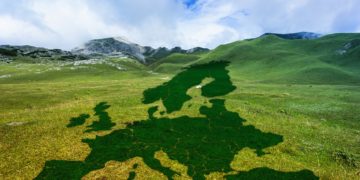United in diversity? – National responses to the European energy crisis

After Vladimir Putin’s second invasion of Ukraine, the European Union is experiencing the worst energy crisis since the 1973 oil shock. In response to the unprecedented energy price spike, EU member states have allocated almost €180bn in order to help its citizens and businesses.
Member states of the EU have deployed different approaches to battle the dependency on Russian fossil fuels. National emergency measures have unfortunately remained uncoordinated and have often resulted in short-term course of action with counterproductive medium and long-term impacts.
This joint paper of five European Think Tanks based in Belgium (Bruegel), Czechia (AMO), France (Jacques Delors Institute), Italy (ECCO) and Spain (EsadeEcPol) aims to provide a brief analysis of the national responses, in light of the Commission’s REPowerEU plan with a view to informing the EU debate on charting an European way out of the crisis that is politically, economically, socially and environmentally sustainable: support for energy sufficiency, energy efficiency and the deployment of renewables in the public discourse.
This briefing includes national case studies in six member states (Czechia, France, Italy, Germany, Spain, Sweden) that together represent two thirds of the EU population, GDP, and energy consumption and offers recommendations that aim to inform the debate of the 30th-31st May 2022 European Council, and forthcoming European and national decisions.
Authors: Romana Březovská (AMO), Georg Zachmann (Bruegel), Giovanni Sgaravatti (Bruegel), Thomas Pellerin-Carlin (JDI), Phuc-Vinh Nguyen (JDI), Leon Leuser (JDI), Karin Thalberg (JDI), Davide Panzeri (ECCO), Jorge Galindo (EsadeEcPol)








